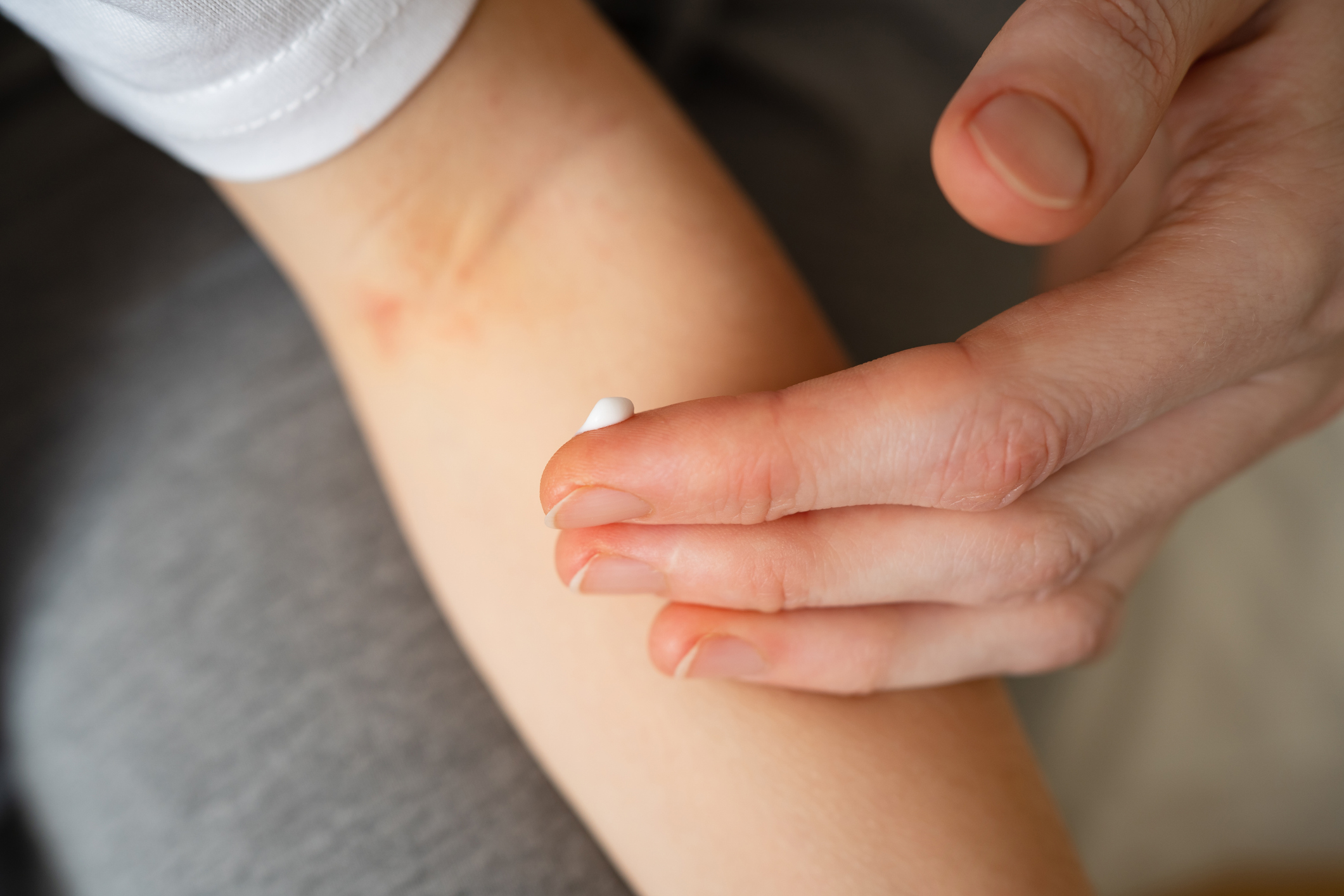
Atopic dermatitis, often referred to as eczema, is a chronic and common skin condition that causes breakouts of red, itchy, or scaly rashes. Every year these irritated and inflamed areas of skin affect more than 9.6 million children and 16.5 million adults.
Anyone can develop atopic dermatitis, but it usually starts and is prevalent in childhood. The condition can be extremely uncomfortable and significantly interfere with quality of life. Active symptoms, also known as flare-ups, usually last for a few weeks and are followed by periods of remission with little or no activity that may last several years.
There is no cure for atopic dermatitis, but there are many treatments that can make you feel more comfortable and prevent flare-ups from starting. Dermatologists Jelena Vasic, MD of Summit Health and Channa Ovits, MD of Westmed Medical Group, a Summit Health Company, specialize in treating this pesky condition that afflicts young patients. They encourage anyone with symptoms to make an appointment with a dermatologist.
Question and Answer: Atopic Dermatitis
Q. What are the telltale symptoms of atopic dermatitis?
Dr. Vasic: Atopic dermatitis is sometimes called “the itch that rashes” because intense itchiness is the hallmark of the condition. It is characterized by scaly pink plaques that come and go. These plaques can look different based on a variety of factors such as the stage of disease, the location on the body, and the age of the patient, along with whether it is the acute or chronic stage.
Q. Does atopic dermatitis usually begin in childhood?
Dr. Vasic: Atopic dermatitis is a disease of childhood. The skin condition usually begins in infancy, with 85 percent of cases presenting in the first year of life, and 95 percent of cases appearing by age five. In most children, atopic dermatitis subsides with age, but it can persist or sometimes even begin in adulthood.
Q. What causes atopic dermatitis?
Dr. Ovits: The exact cause of atopic dermatitis is unknown, but there are both genetic and environmental components. The immune system is considered disordered and overactive, which leads to the characteristic rash and itchiness. Atopic dermatitis is more likely to occur in a child with a family history. Environmental triggers may include certain soaps, fabrics, fragrances, clothing, and either extreme cold or hot weather.
Q. Can food allergies be the culprit?
Dr. Vasic: There is an association between atopic dermatitis and allergies to foods like peanuts, eggs, and milk; however, allergy testing for foods is not indicated for most patients because testing may show sensitivities that are not always correlated with clinically significant food allergies. In addition, patients should not randomly eliminate certain foods from their diet.
Q. How do you avoid flare-ups and treat atopic dermatitis?
Dr. Ovits: It is important to know that atopic dermatitis cannot be cured, but it can be controlled with appropriate skin care and medications. Since atopic dermatitis is the result of a complex interplay of genetic and environmental factors, treatment is multifaceted. It includes what can be modified in the environment, as well as addressing more acute flares.
- Sensitive skin care is the key to keeping symptoms at bay. Using gentle soaps and maintaining skin hydration with moisturizing treatments called emollients is a pillar of controlling atopic dermatitis and reducing the frequency of flares.
- Avoid common allergens and triggers such as fragrances and fabrics like wool.
- A mainstay of addressing the flares of atopic dermatitis is using prescription topical steroids. A board-certified dermatologist will choose a steroid that is safe for the patient.
- Phototherapy harnesses a wavelength of light to calm the overactivity in the immune system that causes atopic dermatitis.
- For more severe cases of atopic dermatitis, systemic medications such as the biologic antibody dupilumab, or immunosuppressants, are utilized.
Q. Any misconceptions about atopic dermatitis that people should understand?
Dr. Vasic: There are several. Food allergy testing is not typically helpful. Parents and many patients are often concerned about the possible side effects of topical steroids. Like most medications, topical steroids can result in side effects if they are used incorrectly. When used as directed, however, they are safe, effective, and essential. Dermatologists are very comfortable with the spectrum of topical corticosteroids and know how to prescribe them appropriately.
